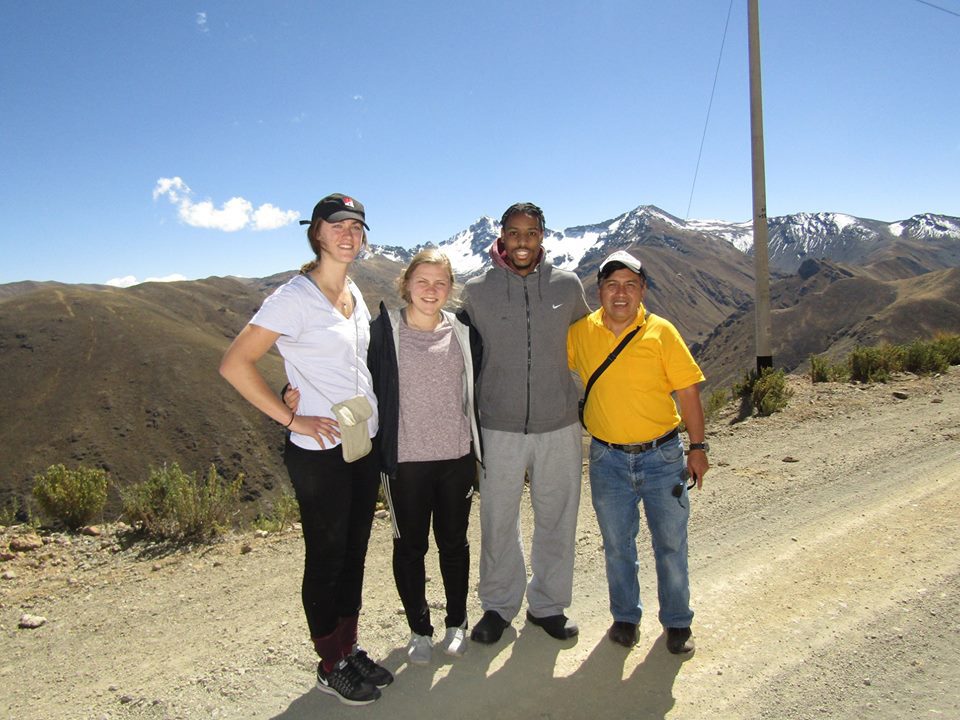Three Eastern Mennonite University students preparing for careers in health professions observed healthcare delivery in Peru this summer on a trip funded by the CT Assist Health Experiential Learning Program.
They – and other students who completed STEM research and internships this summer – will share about their experiences in the first of the fall semester’s Suter Science Seminars, at 4 p.m. on Wednesday, Sept. 12, in the Suter Science Center room 106.
For seven weeks, biology majors Sylvia Mast, Xavier McCants and Maria Yoder shadowed and accompanied health care providers in village and urban settings, took Spanish classes and learned about Peruvian culture through homestays. They were accompanied for two weeks by professor of biology Kris Schmidt, who previously lived and worked in Peru and facilitated their travels.
The CT Assist Health Experiential Learning Program awards funds to pre-professional health science students at EMU to support clinical experiences that help prepare students for professional health programs. The three recipients this year – Sylvia Mast, Xavier McCants and Maria Yoder – each received the maximum amount of $2,500.
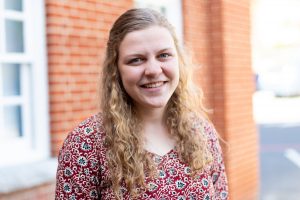
Sylvia Mast
Mast, who plans to become a physician’s assistant, said the trip provided opportunities such as measuring blood pressure, finding a baby’s heartbeat using ultrasound, centrifuging blood and typing bacteria.
Navigating medical terminology and seeking to understand the procedures she was seeing required Mast “to give myself grace in my limited understanding and to be unapologetic in my ignorance” – and “to live with humility and use that humility to foster curiosity,” she said.
“The culture of a community dictates the way healthcare is administered,” she said. That could mean using the appropriate language – perhaps switching from Spanish to Quechua – or prioritizing people’s needs over strict adherence to an established schedule.
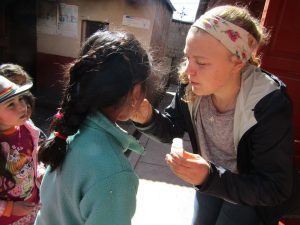
On an “abnormally chaotic” morning in one clinic, Mast observed an appointment that exemplified how though the clinic was a busy place, staff prioritized their patients’ needs: A mother and a nurse had set out to find a needed medical device for a sick baby, leaving the baby with its grandmother in the exam room. Meanwhile, the next patient – another mother – was brought into the same room. When she saw the sick baby crying, she shared some of the milk she had brought along for her own child. While sometimes at the cost of efficiency or organization, a patient visit to this clinic often became a communal effort with doctors and neighbors and strangers working together to solve a problem.
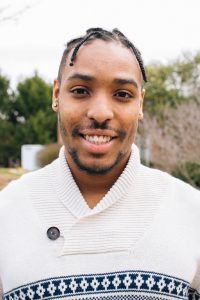
“Observing the healthcare system in Peru has only strengthened my desire to become fluent in a second language, culturally aware within my own community and constantly attuned to ways that the system can provide proactive intervention in establishing a healthier community rather than solely reacting to repetitive problems that arise,” she said.
Xavier McCants
McCants, who also plans to become a physician’s assistant, said that the hospital setting, with its outdated or nonexistent technology and insufficient equipment, was particularly “eye-opening.”
From a doctor he learned about the impact of Venezuelan migration on Peru’s healthcare providers: “All of these people need help but there is not enough equipment,” he said. “So it is hard for the doctors taking in all of these individuals without many resources.”
The cross-cultural experience took McCants out of his comfort zone and prompted him to approach service with “great sensitivity,” he said.
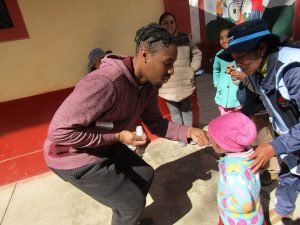
“I genuinely wanted to learn everything I could from the Peruvian culture. I wanted to get the full experience of trying every food possible, listen and dance to their music, and just see the world from a different point of view. I have been able to see how much I take for granted,” said McCants. “I will remember this experience always.”
It also made him want to offer help – and therefore more zealous for future studies.
“Seeing so much and not being able to help was frustrating,” he said. “Knowing I was underqualified and was strictly just shadowing has increased my willingness to want hone my craft!” At the same time, he said, he learned that “service is not always ‘doing,’ but rather being present and accompanying individuals in a task that needs to be done.”
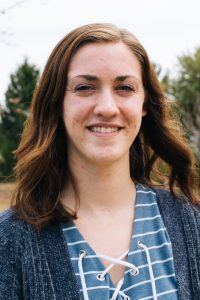
Maria Yoder
Yoder, who hopes to pursue psychology and neuroscience, also observed the culture of care even as she felt the challenge of “seeing all the differences between the Peruvian system and the U.S., and thinking about what I could learn from the system rather than how to ‘correct’ it.”
That system sometimes appeared “chaotic,” with patients waiting in long lines, and doctor visits where staff, and occasionally a stray dog, moved in and out of the room, she said.
“Sometimes a patient will walk into somebody else’s appointment because they have an urgent question,” she said. “I think it’s demonstrative of a more relaxed sense of time and communal living in Peru. I also can’t imagine how rigid and white-washed a visit to the doctor’s office in the U.S. would feel if you were used to this system.”
In the small village of Vito, Yoder observed the difficulties of accessing advanced health care: Lima is a 21-hour winding, bumpy bus ride away – a trial for village women with complicated pregnancies. She also noted the carbohydrate-rich diet of subsistence farm crops that leads to health problems such as diabetes, anemia and malnutrition.
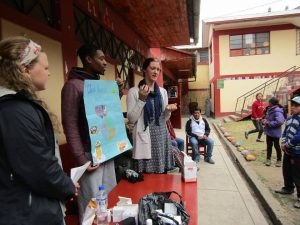
And she realized that all health norms are not always culturally relevant. In Vito, the students prepared and gave “health chats” at an elementary school and with mothers in the community. They had considered including the World Health Organization recommendation to cage animals in order to reduce parasite risks, but decided against doing so.
